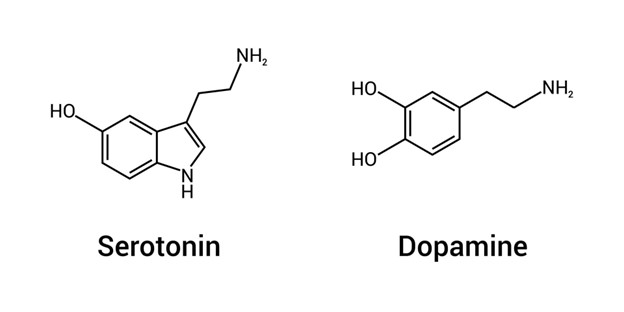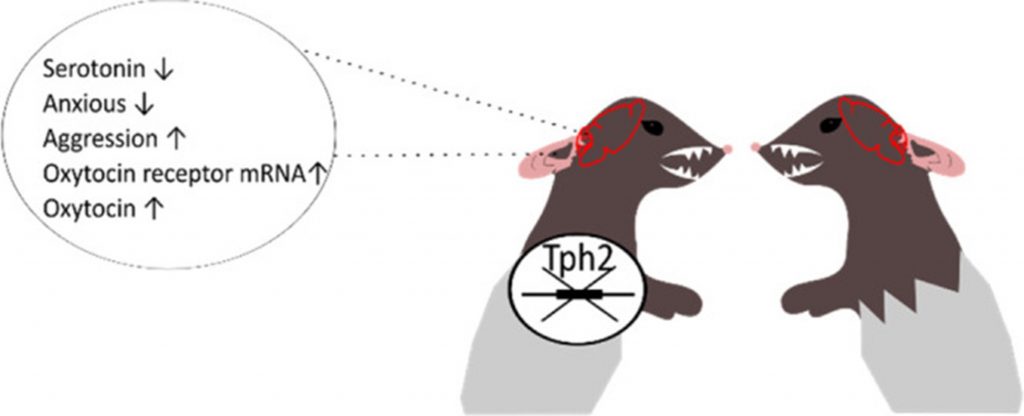This post is also available in Dutch.
This blog is part of this year’s summer series called Brain basics, in which we dive into the general functions and development of our brains. In this exploration of brain basics, we’ll dive into the fascinating world of dopamine and serotonin, two neurotransmitters that play pivotal roles in shaping our emotional well-being.
As the seasons shift and the weather fluctuates, have you noticed changes in your mood? Perhaps you find yourself feeling less joyful and more overwhelmed or helpless. While it’s natural for our emotions to ebb and flow, these shifts could be influenced by the neurotransmitters in your brain.
Dopamine – The Pleasure and Reward Neurotransmitter
Dopamine, often called the ‘pleasure hormone’, acts like a messenger in our brains that helps us feel happy and motivated. It originates primarily from the substantia nigra and ventral tegmental area in the brain and gets released when we experience something enjoyable, like having a tasty meal or achieving a goal. This release of dopamine makes us feel good and encourages us to keep doing things that make us happy. This is why some unhealthy eating habits might develop into food addiction. When our brain has the right amount of dopamine, we generally feel content. But if something goes wrong with our dopamine levels, it can lead to feeling down or struggling with things like addiction.

image originated from SimplyPsychology.org
Serotonin – The Mood Stabilizer
Serotonin, often seen as a mood stabilizer, plays a vital role in helping us manage our emotions, especially those bad moods. Serotonin is mainly produced from a brain region called the raphe nuclei and it also helps control other things like our sleep-wake cycle, appetite, and body temperature. Like with dopamine, we need the right amount of serotonin: when the balance gets thrown off, it can lead to mood problems like feeling depressive. Keeping our serotonin levels healthy is crucial for mental health. Clinically, doctors often prescribe serotonin medications to help with depression.

Rats with low levels of serotonin show more aggression and less anxiety (paper by Meng et al)
The Balance of Dopamine and Serotonin
While researchers believe serotonin and dopamine exert both affective and activational functions coming from a single root mechanism, their functions are seemingly distinct. Dopamine serves to promote behavioral activation to seek rewards, whereas serotonin serves to inhibit actions when punishments may occur. For example, dopamine helps when we need to hurry up for the last bundle of bread, while serotonin kicks in when we try to minimize our steps to avoid spilling our coffee. You can see how important their cooperation with each other is to our daily life and to our emotional well-being.
Summary
Dopamine and serotonin are essential neurotransmitters that help us obtain happiness and regulate our emotions. There are simple ways to increase our dopamine/serotonin levels, such as going out for a walk, managing stress, and staying active. Don’t hesitate to seek professional help when you notice there’s something wrong with your body or your mental well-being.
Credits
Author: guest blogger (Xianzong Meng)
Buddy: Ping Chen
Editor: Wessel Hieselaar
Translation: Lucas Geelen
Editor translation: Judith Scholing
